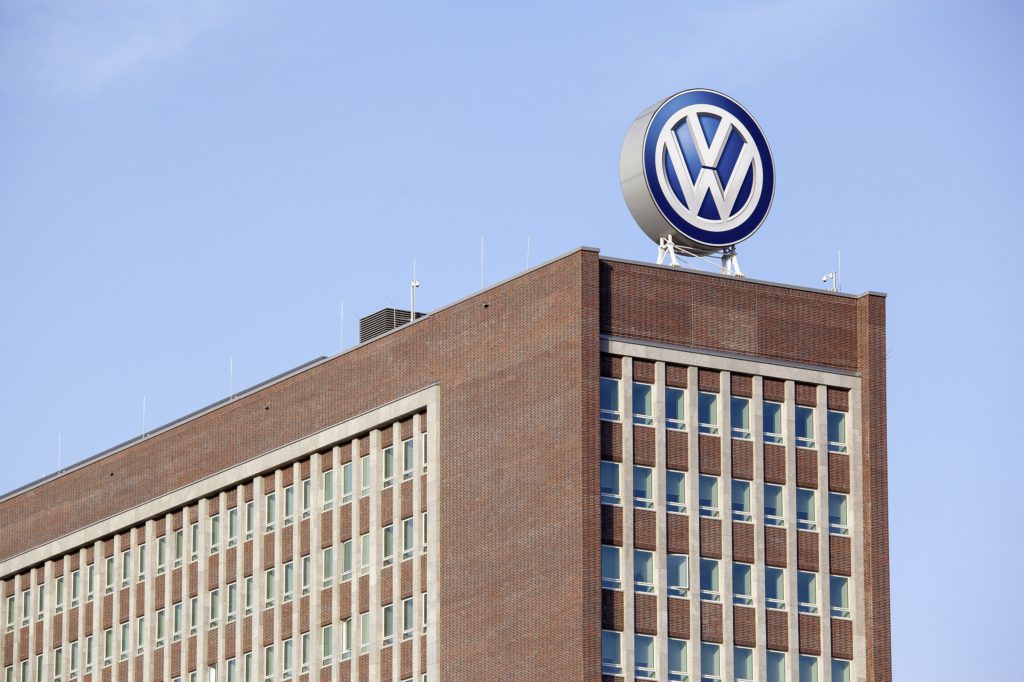VW replaces Muller with Diess as it looks to secure future mobility leadership
16 April 2018

16 April 2018
The Volkswagen Group (VW) has ′extensively revised’ its management structure as it looks to move forward into the world of low-emission vehicles.
The Board of Management has removed Matthias Muller from his position as Chairman of the company, replacing him with Herbert Diess, who previously headed up the VW core brand. The board believes that Diess can move the business forward as it looks to become a market leader in low and zero-emission vehicles, something Muller was unable to do during his tenure.
Chairman of the Supervisory Board Hans Dieter Pötsch expressly thanked MÜller for his dedication: ′Matthias MÜller has done outstanding work for the Volkswagen Group. He assumed the chairmanship of the Board of Management in the fall of 2015 when the Company faced the greatest challenge in its history. Not only did he safely navigate Volkswagen through that time; together with his team, he also fundamentally realigned the Group’s strategy, initiated cultural change and, with great personal commitment, made sure that the Volkswagen Group not just stayed on track but is now more robust than ever before. For that, he is due to the thanks of the entire Company.’
′The Volkswagen Group is a union of strong brands with great potential. Matthias MÜller has laid the groundwork for our transformation. My most important task will now be to join with our management team and our Group workforce in consistently pursuing and pushing forward our evolution into a profitable, world-leading provider of sustainable mobility. In a phase of profound upheaval in the automotive industry, it is vital for Volkswagen to pick up speed and make an unmistakable mark in e-mobility, the digitalisation of the automobile and transportation as well as new mobility services,’ Diess says.
The company has also established new brand groups – Volume, Premium and Super Premium, as part of six new business groups, with an additional business portfolio for China, the group’s biggest market. The group will split its brands amongst the three new business categories in an effort to make the management process more efficient.
Along with the planned preparation for capital market readiness of Truck & Bus, which recently announced a joint venture with Toyota to develop electric trucks, the business model creates the basis for a more subsidiary leadership of the Group. The Chairmen of the Board of Management responsible for the brand groups will be taking on additional Group management roles. Following this reorganisation, Herbert Diess will be responsible for Group Development and Research, Rupert Stadler for Group Sales, and Oliver Blume for Group Production.
Additional Group functions will be allocated according to the same principle. Due to the special significance of vehicle connectivity, Vehicle IT will be led by Herbert Diess himself; Company IT will be headed by Frank Witter. Procurement and Components are to be combined into one unit going forward.
′The Volkswagen Group’s goal is and remains to align the Company and its brands with future needs, to safeguard its position among the leaders of the international automotive industry with innovativeness and profitability and to be instrumental in shaping tomorrow’s mobility with the strength of our Group brands. Herbert Diess is the right manager to do that. In realigning the Volkswagen brand, he has demonstrated to impressive effect the speed and rigour with which he can implement radical transformation processes. This accomplishment makes him predestined to fully implement our Strategy 2025 in the decisive years that are now to follow,’ Pötsch concludes.
VW is undergoing big changes as it looks to lead the market in electric and hybrid vehicles, with an investment of €70 billion to produce a number of new electric models by 2025. The company has also started development of its electric I.D. range.